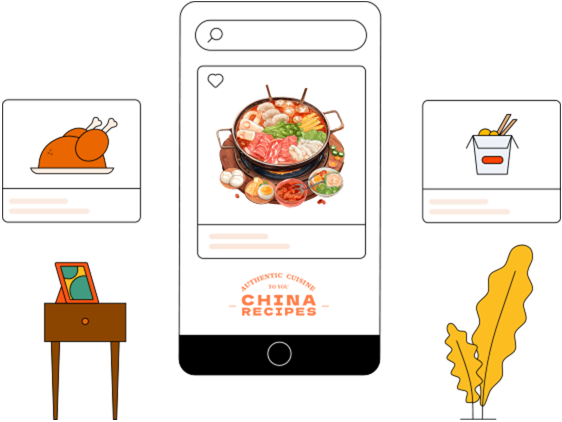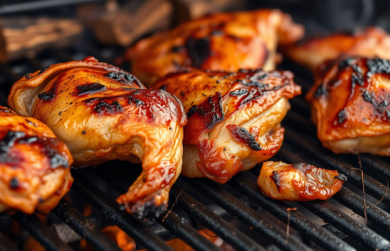Pressure Cook Fresh Chicken Thighs: Simple Guide
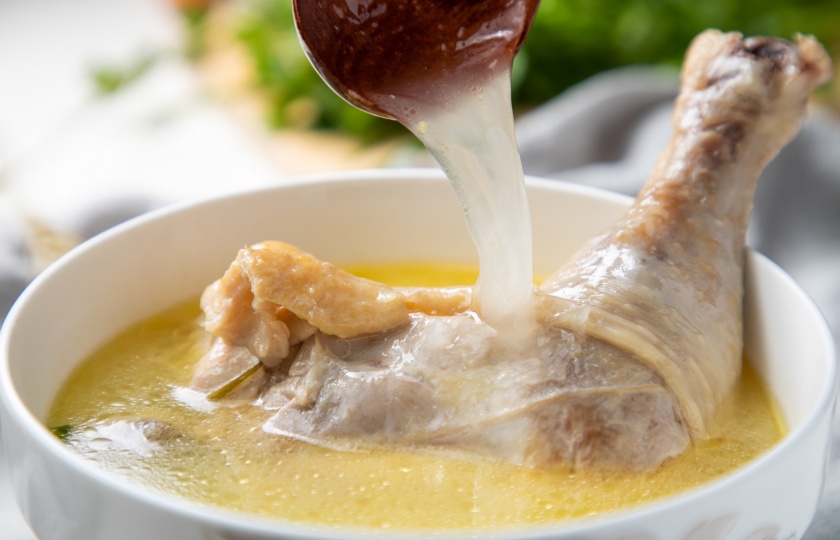
Cooking chicken thighs in a pressure cooker is incredibly convenient and delicious. Let’s take a look at how to do it!
Pressure Cook Fresh Chicken Thighs
Ingredients:
Fresh chicken thighs: 4-6 pieces (adjust based on the number of people)
Seasonings: Soy sauce, dark soy sauce, cooking wine, salt, sugar, ginger slices, green onion pieces, garlic slices, star anise, bay leaves
Vegetables: Onion, carrots
Detailed Steps:
Prepare the Chicken Thighs
Wash the chicken thighs and make a few shallow cuts on the surface using kitchen scissors to help the seasoning penetrate.
Marinate the chicken thighs with cooking wine, salt, ginger slices, and green onion pieces, then refrigerate for at least 1 hour (overnight marination will give a better flavor).
Prepare the Pressure Cooker
Place onion slices, ginger slices, and green onion pieces at the bottom of the pressure cooker to prevent the chicken from sticking and to add aroma.
Put the marinated chicken thighs on top of the onions, and pour in the marinating liquid.
Cooking
Add appropriate amounts of soy sauce, dark soy sauce, sugar, and star anise according to your taste.
Pour in a small amount of hot water, select the “chicken or duck” setting, and set the timer for 20-25 minutes.
After the pressure cooker naturally releases the pressure, open the lid. If there is too much liquid, you can remove the lid and reduce the sauce.
Tips:
The longer the chicken is marinated, the more flavorful it becomes. It’s best to marinate in advance.
Don’t add too much water when using a pressure cooker, as it has a good seal and won’t lose moisture easily.
How Long Do You Pressure Cook Chicken Thighs?
Golden Time Formula
Bone-in Chicken Thighs (whole):
Start with cold water, bring to pressure, and cook for 18 minutes. Let it naturally release pressure. The result will be tender meat.

Boneless Chicken Thighs (2 cm thick):
Start with cold water, bring to pressure, cook for 12 minutes, and quickly release pressure to lock in the juiciness.
Important Variables to Control:
Frozen Chicken Thighs: Be sure to fully thaw them before cooking, as a temperature difference can result in uneven cooking.
Quick thaw: Microwave on low for 5 minutes.
Pressure Cooker Type:
Regular Steel Pot: Cook for 10 minutes after the pressure is reached.
Electric Pressure Cooker: Use the “chicken” setting.
Is It Better to Pressure Cook or Slow Cook Chicken Thighs?
Choose based on your needs:
Advantages of a Pressure Cooker:
Speed: The main advantage of a pressure cooker is speed, usually cooking the chicken in 8-12 minutes.
Firm Texture: Pressure-cooked chicken thighs have a firmer texture and don’t fall apart easily.
Nutritional Benefits: The short cooking time helps retain the nutrients in the chicken.
Best for: Families looking for a quick meal.
Advantages of Slow Cooking:
Taste: Slow-cooked chicken thighs can fully absorb the flavors of the seasonings, resulting in a rich, tender texture that melts in your mouth.
Nutritional Benefits: The longer cooking time allows the chicken’s nutrients to blend into the broth, providing a nourishing effect.
Best for: Dishes that focus on flavor and texture.
Does Chicken Get More Tender the Longer You Pressure Cook It?
Cooking chicken in a pressure cooker doesn’t mean the longer you cook it, the more tender it becomes.
Generally, within the proper cooking time, chicken will become more tender the longer you cook it. This allows the fibers to soften, resulting in better texture.
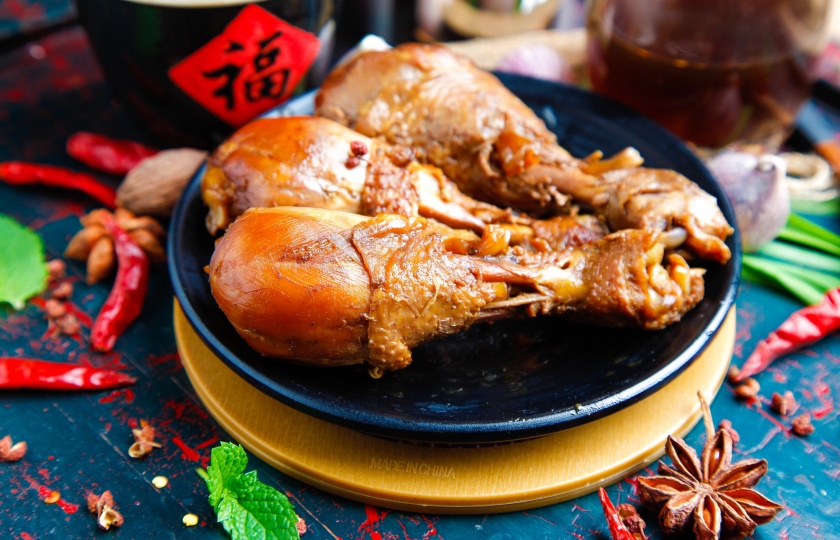
However, if you cook it too long, the fibers will break down too much, making the chicken tough and dry, losing its tender texture.
Additionally, overcooking can cause the nutrients in the chicken to leach out, and the excess fat will make the broth greasy.
For regular chicken thighs, 8-12 minutes in a pressure cooker is usually sufficient, while a whole chicken may take 15-20 minutes depending on size and type.
Why Is My Chicken Tough After Pressure Cooking?
Adding Salt Too Early: Adding salt too soon causes the chicken to lose moisture and the protein to coagulate, making the meat tough.
Old Chicken: The quality of the chicken matters. If the chicken is older or from an older bird, the meat will naturally be tougher.
Cooking Time Issues: Tender chicken requires 15-20 minutes of cooking after the pressure is reached. For older chickens, it may take 30-40 minutes. Under-cooking leaves the meat tough, while over-cooking results in dry, stringy meat.
Improper Blanching: If the water temperature is too high when blanching the chicken, the outer layer will tighten up quickly and become firm.
Pressure Cooker Seal Problems: If the pressure cooker doesn’t seal well, it won’t generate enough pressure, affecting the cooking result.
Is Pressure Cooked Chicken Healthier Than Fried Chicken?
Cooking chicken in a pressure cooker is generally healthier than frying.
Nutrient Retention: Pressure cooking preserves more nutrients in the chicken, and the fat and calories are lower.
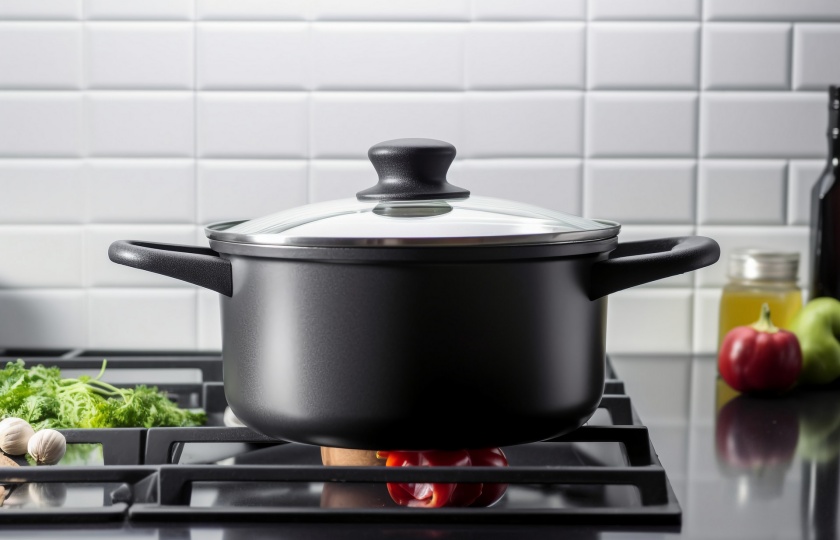
Faster Cooking: The high heat and pressure of the pressure cooker lock in moisture and nutrients, making the meat tender.
Customization: You can add ingredients like jujube and goji berries to enhance both flavor and nutritional value.





